
Why Should We Be Optimistic with NYT Columnist Tom Friedman | HOW Matters
Dov and Tom discuss why we should all consider ourselves optimists.
There are hundreds of Insights to explore that we hope raise people’s consciousness and elevate the conversation by exploring today’s world through the lens of The HOW philosophy.

Dov and Tom discuss why we should all consider ourselves optimists.

The year 2007 was a major inflection point, with technological breakthroughs—such as the introduction of the iPhone, the Android platform, the cloud, the Kindle, to name a few—forever changing the way we live, work and interact.

I spent the first part of the week at FORTUNE Brainstorm Tech in Aspen, a gathering of leaders and thinkers who seemed—to me, at least—to deliver nonstop insight and surprise for three solid days.

The jobs of the future will be different, and education must evolve, Andrew shared with Dov in their recent conversation.

What is technology’s responsibility as a platform for behavior?

What does it mean to be human in the age of AI? Dov Seidman and Andrew Keen explore technology’s implications on the future of humanity.

Who is accountable for the privacy of our data? Dov Seidman and Andrew Keen discuss the roles both government and consumers play in data protection.


In today’s society, leaders often grapple with the unintended consequences of technology platforms and struggle to ensure they fulfill their original purpose.
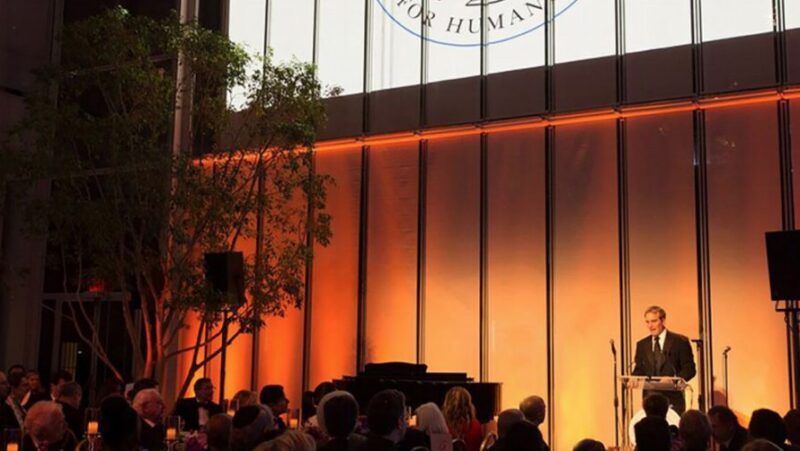
On November 1, 2017, the Elie Wiesel Foundation for Humanity presented its inaugural Legacy Award to Oprah Winfrey at the Morgan Library in New York City. The award recognized Ms. Winfrey’s efforts to carry on the work and message of Elie Wiesel through her commitment to humanitarian service. CEO of LRN Dov Seidman was asked to speak about what Elie mean

Join Pulitzer Prize-winning New York Times writer Thomas Friedman in conversation with CEO and author Dov Seidman, as they explore their of-the-moment analysis and response to what's happening in American society today.

It's always a good time to ask what kind of leadership we need because the world is constantly changing. But the world is not only changing. It's being dramatically reshaped, making us ask the question not just with more urgency but through a different lens.

Sometimes the best gifts in life come to us in unusual ways. So it was with my dear friend Mats Lederhausen's recent birthday. Aptly named a "former wunderkind" by Reuters.com, Mats was turning fifty, and as a celebratory gesture of this milestone, he and his wife Jessica decided to host a party. Not just any party, mind you, as this one served to expand the worldview of all who attended - most of all my own.

Q&A with Dov Seidman of LRN, a compliance and ethics education and advisory service in Midtown.

The panel is here. Robert Costa, national political reporter for The Washington Post, and moderator of PBS's Washington Week. Helene Cooper, Pentagon correspondent for The New York Times, Danielle Pletka of the American Enterprise Institute, and Tom Friedman, columnist for The New York Times.

It’s a thoughtful book, not the type to read in one sitting, but one filled with experience and perspective that will change the way you think about the world and your role in it.

It has been one year since the passing of Shimon Peres. Visionary, soldier, statesman, founder of the State of Israel, prime minister, president, Nobel laureate: no title, description or accolade can fully capture the immensity of his contribution — not only to Israel but to all who aspire to a better, more peaceful, more just world.

The animating spirit of business has always been an ambition to do big things—to build something valuable, to solve a difficult problem, to provide a useful service, to explore the frontiers of human possibility.
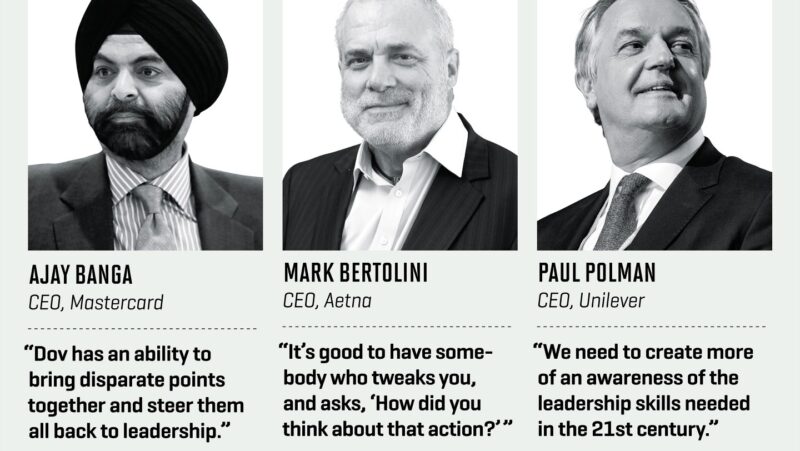
The animating spirit of business has always been an ambition to do big things—to build something valuable, to solve a difficult problem, to provide a useful service, to explore the frontiers of human possibility.

Lessons on how to be a better boss from corporate-leadership guru Dov Seidman.
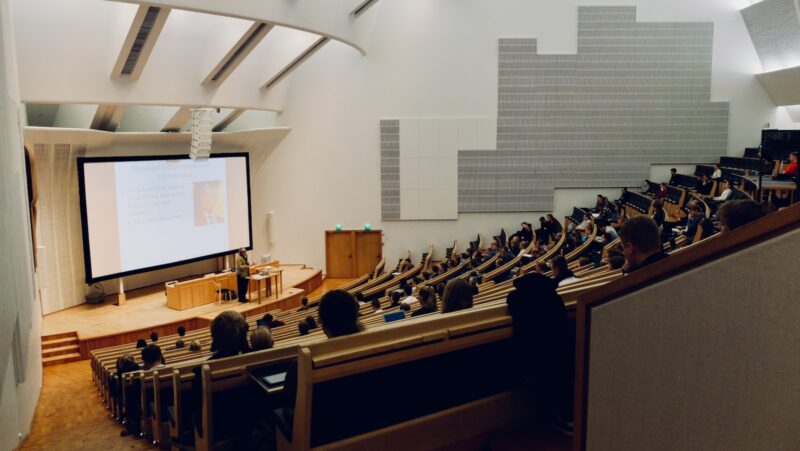
This fall, some 20 million students will attend colleges and universities across America. At a formative time in their lives – intellectually, emotionally and morally – they’ll be exposed to a range of people and ideas that will shape the way they think, feel and relate to others and the world.

Alan Murray writes about Dov's views on the Moral Imperative of Leadership.

Today marks one year since the passing of Professor Elie Wiesel. To me, and certainly to countless others, Elie Wiesel was a, if not the moral conscience of our world. Professor Wiesel said that “words can sometimes, in moments of grace, attain the status of deeds.” His morally courageous and truthful words in so many moments of consequence – especially when in the face of hatred or persecution – transformed into deeds that made our world more just and human.


With shared truth debased and trust in leaders diminished, we now face a full-blown “crisis of authority itself.'

United Airlines’ rough dragging of a passenger off a flight to Louisville has now joined Cecil the Lion and Justine Sacco as case studies in social media outrage.

Having spent decades in the military serving for a series of terrific leaders, I would offer the simple thought that reading books can make people better leaders.Having spent decades in the military serving for a series of terrific leaders, I would offer the simple thought that reading books can make people better leaders.

The bank's CEO appeared before a Senate banking committee this week to answer questions about fake accounts created by more than 5,000 of his employees. Scott Simon talks with consultant Dov Seidman.

NYT columnist Tom Friedman joins the 'Meet the Press' roundtable to discuss President Trump's latest shocking behavior: accusing President Obama of spying on him.

The rise of AI will have a huge impact on your career. Will creativity keep you robot-proof? The answer may surprise you

In the face of rampant technology and automation (including warnings about jobs being lost to robots), Seidman points out that we must cultivate trust, truth, values, passion, and other human-related qualities. He notes that numerous companies tout the word human in their slogans. In many cases, these companies do exemplify human-centered values. However, “though these efforts are likely earnest attempts to embody human values, companies get into trouble when they don't fully and completely instill these values in their organizations.” Citing the example of Nelson Mandela, Seidman writes: “When you demonstrate moral authority, people follow you not because they have to, but because they want to.”

Technology isn’t just changing our world. It’s reshaping it faster than individuals and institutions are...

Admiral James Stavridis, former Supreme Allied Commander of NATO and current Dean of the Fletcher School of Law and Diplomacy, recommended President Trump five books in the earnest spirit that “reading can make people better leaders.” Each offers insights into the human condition and metaphors for navigating the vicissitudes of life, and when taken together,…
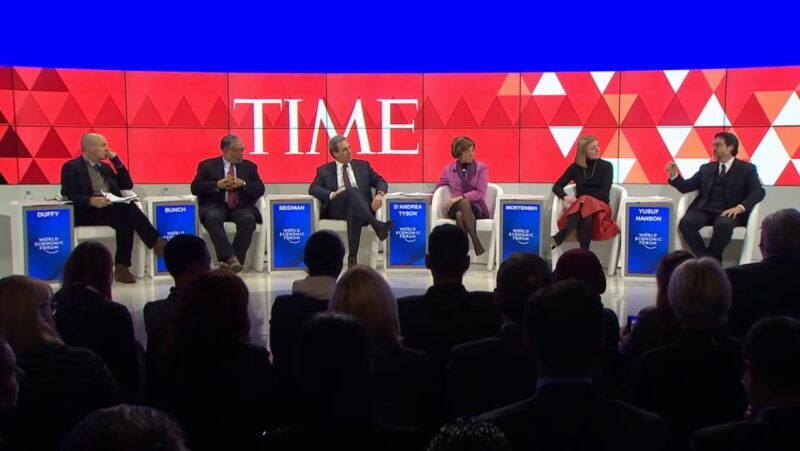
A new president will be inaugurated this week. In the aftermath of a divisive election season, how can the United States be reunited?
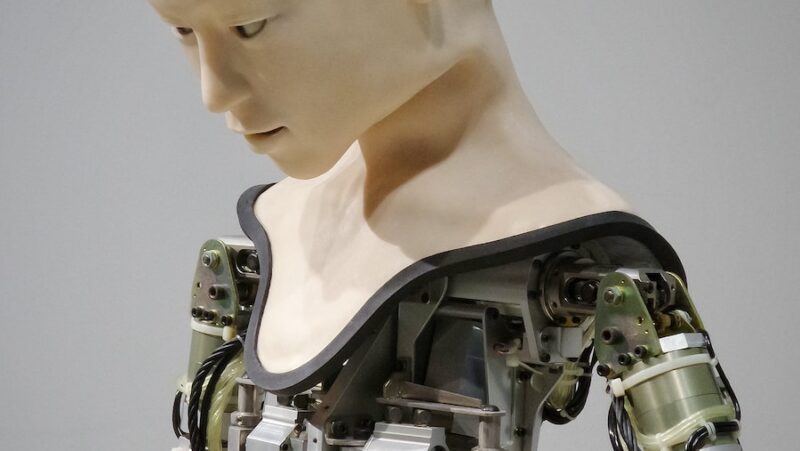

The one thing machines will never have: “a heart.”
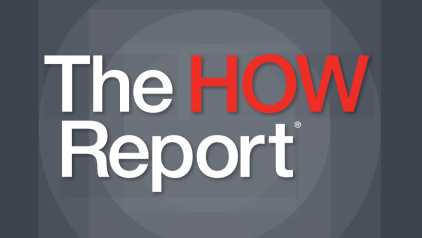

Are the world views, frameworks, and tools that leaders use to chart their course sufficient to compete today and tomorrow? We believe the answer is “No.” Our conclusion is supported by the results from one of the most ambitious, long-term research projects in the fields of organizational effectiveness, behavior, and leadership. The HOW Report suggest a clear roadmap for how organizations can simultaneously build resilience and deliver growth in today’s global economy.

Billions of people in the world are shut out. They have no membership in the financial institutions of life that allow those in richer nations to save, invest, borrow, build, and trade freely. Tens of millions of people, a huge share of them children, have been left stateless by war and poverty; many more live lives of subsistence in remote or rural regions of the world.

Every single day, business leaders and the people they work with are constantly reminded that the world around them is moving faster than they are currently able to respond and in ways that they struggle to predict, comprehend, let alone control. The world around us is not simply speeding up, it is being fashioned into something altogether new; the amount, level, and magnitude of change has accelerated to the point that we have gone from a difference of degree to a difference of kind.

I recently shared a meal with Dov Seidman, the CEO of LRN, which advises companies on how to build ethical cultures. He reminded me that the philosopher David Hume said that “the moral imagination diminishes with distance.”


I began election night writing a column that started with words from an immigrant, my friend Lesley Goldwasser, who came to America from Zimbabwe in the 1980s. Surveying our political scene a few years ago, Lesley remarked to me: “You Americans kick around your country like it’s a football. But it’s not a football. It’s a Fabergé egg. You can break it.”

Businesses of all kinds are mired in a crisis of trust. Whether it’s the exposure of embarrassing corporate details stemming from a hack initiated in Asia; the revelation that a company has systematically misled its customers, subverted regulators, or made unreliable claims to patients; the release of sensitive financial documents through WikiLeaks or the Panama…

The financial crisis may have begun with a lion’s roar, but it seems to have concluded with something akin to a lamb’s bleat. In late August, the SEC announced a settlement with former Fannie Mae CEO and President Daniel Mudd, who was accused of misleading investors about the organization’s exposure to risky mortgages, marking the conclusion of one of the last legal battles…

College of Business shares unique partnership with Dov Seidman - its Thought Leader of the Year - putting HOW at the center of innovative new leadership curriculum

People see that many of the companies where they have put their time, money, and faith are not actually working for them. Many employees and customers have adopted mistrust as a way of life, assuming that every big mainstream business will sooner or later fail to live up to their expectations.


As long as I have more dreams in my head than achievements, I am young.”.

The world is not just rapidly changing, it is being dramatically reshaped. It is being reshaped faster than individual humans and the institutions are yet able to respond. Recent technological advances and disruptions have generated a world that operates so differently that we struggle to comprehend its meaning and adapt to the circumstances it presents to us. This new world poses profound challenges for organizations of all kinds as they try to cultivate resilience and simultaneously determine a source of growth.

“The vast majority of business leaders are looking for innovation in all the wrong places. In the 20th century, a CEO could command his employees to, ‘produce 10 times as many widgets as you did last month,’ in the same way that a general might have told a soldier to, ‘Take that hill.’ You could…

The world has seen many failed alliances, from the League of Nations to the Warsaw Pact. We should all hope that NATO does not become one of them.

1. Top Performing Companies Will Focus On Connecting Customers

In modern business, perhaps the most sacred management adage is that what you measure is what you get. Therefore, it follows, you must manage what you measure. At the same time, Albert Einstein cautioned that, “Not everything that can be counted counts and not everything that counts can be counted.” All of these sayings contain both truth and wisdom that apply to this day, but as we forge ahead in a new century, we have yet to come to grips with what is, perhaps, an even deeper truth.

Dov Seidman talks about the moral imperative of modern leadership.

Machines are starting to out-think us.